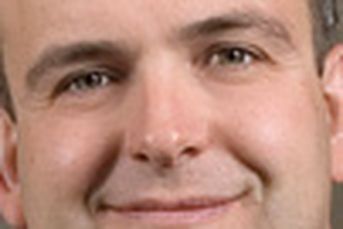Ex-Fidelity brokers claim sales pressure
Dozens of brokers serving Fidelity Brokerage Services LLC’s most affluent clients left the firm last year, claiming they were handcuffed by a requirement that they obtain certified financial planner certification, while being prohibited from disclosing that much of their bonus compensation was tied to selling managed-money programs and other proprietary products.
Dozens of brokers serving Fidelity Brokerage Services LLC’s most affluent clients left the firm last year, claiming they were handcuffed by a requirement that they obtain certified financial planner certification, while being prohibited from disclosing that part of their bonus compensation was tied to selling managed-money programs and other proprietary products.
The Certified Financial Planner Board of Standards Inc.’s new code of ethics and professional responsibility requires certified planners to tell clients of material conflicts of interest, including compensation arrangements.
The Fidelity Investments brokerage unit withdrew the CFP mandate in January — two years after imposing the requirement and the same month that the CFP Board began enforcing the code.
Several former brokers said Fidelity Brokerage reversed course in part because it is under pressure to replace brokers who left its Private Client Group, which serves clients with $1 million or more in assets. About 18% of more than 275 account executives in the group quit in 2008, according to brokers and people close to the company.
“Attrition is something to be expected, and in that regard, we’re no different than any other firm,” Fidelity spokesman Vincent Loporchio wrote in an e-mail. “We are confident that our compensation methodology is aligned with doing what is in the best interest of our customers, and we believe we compare quite favorably in that regard with our competitors.”
Mr. Loporchio wouldn’t comment on specific numbers but said that broker count in the high-net-worth unit, formerly known as Private Access, grew by more than 15% last year.
Fidelity brokers receive about half their compensation in salary (averaging between $90,000 and $100,000) and half in bonuses keyed to customer experience surveys and, more importantly, to growth of assets and managers’ assessments. Brokers and a person close to the firm said that Fidelity had been agnostic about product type in the assessment and asset growth components until last year, when new management began emphasizing high-margin money management and insurance products after a surge of money-market assets flooded in.
“A lot of us left because we realized we were going to have to sell proprietary products and be in conflict with the CFP code of ethics,” said Carroll “Bill” Hayes, who quit last summer despite receiving his certification. He is now a principal of Charles Carroll Financial Partners, a registered investment adviser in Annandale, Va.
“If we didn’t get the CFP by the middle of 2009, we were told we would be let go,” Mr. Hayes said.
Mr. Loporchio denied the former brokers’ claims that bonuses are skewed toward the sale of profitable proprietary products.
“All products are treated equally, including money markets,” he wrote, singling out the traditionally low-margin product. Mr. Loporchio also said that only about 9% of a broker’s total compensation is tied to product sales.
For the full report, see the upcoming April 6 issue of InvestmentNews
Learn more about reprints and licensing for this article.




